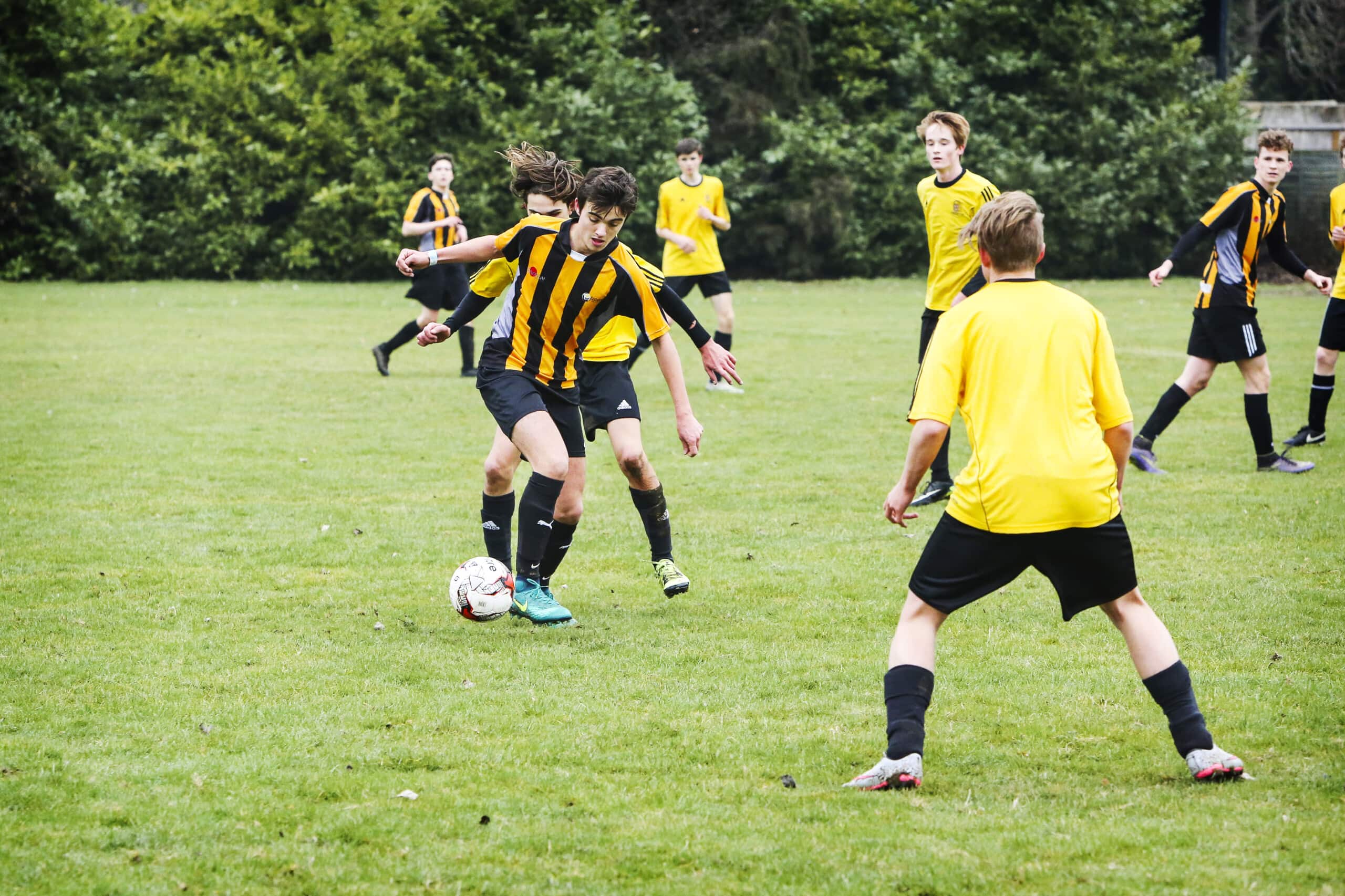Life Skills and Wellbeing
Useful, life enhancing and enjoyable, all of our Life Skills and Wellbeing courses are a fantastic addition to any timetable. With a variety to choose from, they will take you from the College, to the workplace and beyond.

Short Courses
Equality, Diversity and Inclusion - Raising Awareness and Promoting Understanding

This short course will include discussion, reading and promoting EDI to the wider student body. The promotion aspect will be student lead and could include running events, designing and distributing posters and making materials to go in PDP. Topics of focus will be Neurodiversity, LGBTQIA+, Black History Month and Religious Festivals.’
Chess for Beginners and Improvers

An Introduction to Chess course provides a solid foundation for beginners and a way to develop you skills. Here are the key aspects covered:
- Rules and Setup: Learn how to set up the 8×8 chessboard, understand piece movements, and grasp the objective of the game.
- Piece Movements: Explore how each piece (king, queen, rook, bishop, knight, and pawn) moves. Understand capturing and the concept of checkmate.
- Basic Tactics: Discover essential tactics like forks, pins, and skewers. These strategies enhance your gameplay and help you gain an advantage.
- Checkmate Patterns: Practice common checkmating patterns. Recognize opportunities to deliver checkmate and win the game.
Whether you’re a complete beginner or seeking to break through a rating plateau, this course sets you on a rewarding chess journey!
Critical Thinking

Critical thinking is the study of reasoning and argument. In this course, we will learn about the different types of argument (such as inductive and deductive reasoning), how to evaluate evidence, and how to assess good and bad sources of information. This will not just be a course on abstract reasoning, though our focus will be on applying these skills to the arguments, controversies and debates that are currently taking place both in politics and in culture more broadly. Finally, we will study what happening when reasoning goes wrong: what is a conspiracy theory, and are they really “theories” at all? How can we identify and resist the power of moral panics? If you are interested in the difference between persuasive rhetoric and good argument, if you are a keen follower of politics, or if you want to build up your defences against misinformation in an increasingly complicated world, then this is the course for you!
Exploring Apprenticeships-

Exploring Apprenticeships: Understand the concept and benefits of apprenticeships. Explore different types of apprenticeships and industries. Learn how to research apprenticeship opportunities effectively. Develop essential application materials, such as CVs and cover letters. Enhance interview skills and techniques specific to apprenticeship interviews. Navigate the apprenticeship application process from start to finish. Utilise networking and outreach strategies to find apprenticeship opportunities.
Long Courses
Community Volunteers

This activity is particularly suitable for those thinking of entering the caring professions such as teaching, medicine or nursing. It involves going out into the community to help in local hospitals, local care homes, nurseries and schools.
Placements typically involve spending a minimum of one hour and ten minutes working assisting with various tasks. In schools you may be asked to help children with reading, sports, art, drama etc., or to help the teacher prepare materials for class use or clear up after a class.
In care homes you may be asked to talk with the old people or help to organise social activities. In a hospital you may be asked to work as a dining companion, assisting ward staff and patients during mealtimes.
Students will follow a short induction course with talks from caring professionals and will start their placements after October half-term.
Duke of Edinburgh Award (Gold)

We have successfully run the Duke of Edinburgh Award at Esher College for the past 12 years. At College, we only offer the Gold Award but it is important to realise that you do not have to have completed the Bronze or Silver to start the Gold Award.
The Award consists of 3 main sections Volunteering, Skill and Physical and students have to do an hour a week in each section over a period of time ranging from 6 to 18 months. Note: they do not all have to be done at the same time so the Award allows up to the age of 24 for completion.
You will be allocated to a group and from that group a sub group that will form the team with which you complete the expedition. Previous expeditions include walking across the Brecon Beacons then paddling on the River Wey.
Costs £154 registration fee plus preparation and expedition costs.
Scuba Diving

This course gives you a fantastic opportunity to obtain an internationally recognised diver certification whilst having fun alongside the rest of your studies. If you’ve ever been snorkelling and been frustrated that so much marine life was out of reach or maybe you have been enthralled by ‘Blue Planet’, then this is an opportunity not to be missed.
You will complete the PADI Open Water Course which will give you the knowledge and skills needed to keep you safe as you experience your first breaths underwater and is designed for people who have never previously dived. It could be the first step to a lifestyle change, preparation for a marine biology degree or even a career as a dive professional although most students do it just for fun especially if they go travelling.
The course comprises of:
- The theory behind all aspects of scuba diving including safety.
- Confined Water Training to develop skills in a safe swimming pool environment.
- Open Water Dives to review and assess skills in a real environment before certification.
Theory is taught through weekly lessons in college as part of your timetable. Six Pool sessions are on Friday evenings at Putney Leisure Centre.
The Open Water Dive assessment, where you will complete 4 dives over 2 days is at Wraysbury Diving Centre near Staines. This will take place after your 1st year progression exams.
All practical training is provided by Aquanaut dive school in Kingston http://www.aquanautscuba.co.uk/
All students who apply for this must complete a medical self-assessment questionnaire when enrolling and must be able to commit to all planned sessions. You don’t have to be a fantastic swimmer as long as you are confident in the water and not claustrophobic. If you need more information before committing then please email nglennard@esher.ac.uk.
Costs: £415 includes all tuition, kit hire, crew pack (containing course learning materials) and certification. The normal cost for this course is £515! Extra Costs – Entrance to Wraysbury Dive Centre (WDC) (approx. £15 per day) and air fills (approx. £8 – £16) paid directly to WDC on the day.
The course has always proved extremely popular. Success rate is more than 90% for all students that commit to the course, but please do not this select this course unless you have discussed the costs with your parent/guardian and can commit to the Friday evening sessions otherwise you are likely to disappoint other students. The course is often oversubscribed.
Leadership for Sixth Formers

In a post-covid world with A.I. dominating world agendas, leadership involves personally engaging and being emotionally intelligent. Ask yourself these 3 questions:
- How well do you understand the daily impact of your actions on those around you?
- How well do you listen?
- How well do you learn?
If you score yourself 100% you may already be a great leader!
Your course leaders will draw from an incredible range of leadership experiences (Executive Coaching, Military, Sport, Industry, Public and Voluntary) to help you:
- learn the skills and techniques of effective leadership; and
- understand how Emotional Intelligence underpins effective leadership.
“From being the quiet one in the corner I found myself leading projects and running feedback sessions for my team members”. (Hasti Mozdi) Past student now, reading Law at Queen Mary’s University, Community Mentor (Future Leaders UK) and Law Research Officer.
“Even if a job doesn’t have a managerial title, employers value candidates who exhibit leadership qualities. Leadership goes beyond just managing people; it involves taking initiative, inspiring others, and demonstrating a commitment to the organisation’s goals. Candidates who can showcase leadership potential stand out in the eyes of employers.” (LinkedIn)




